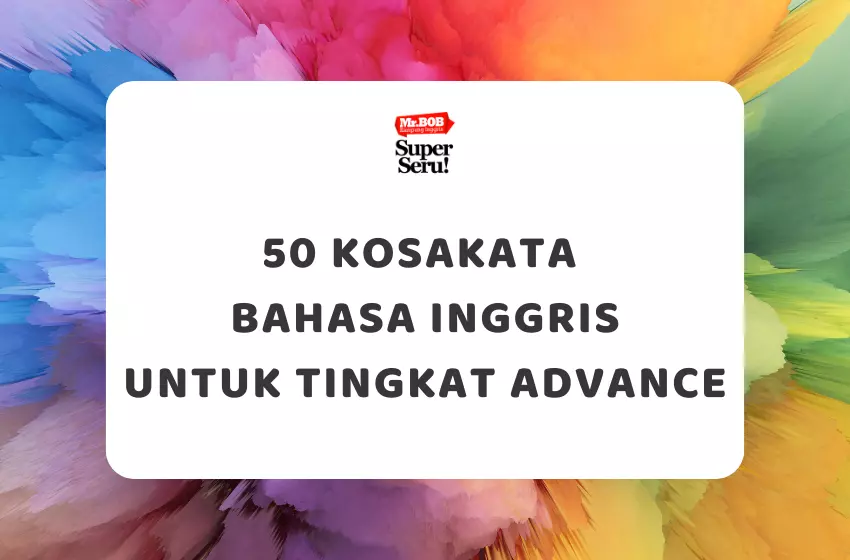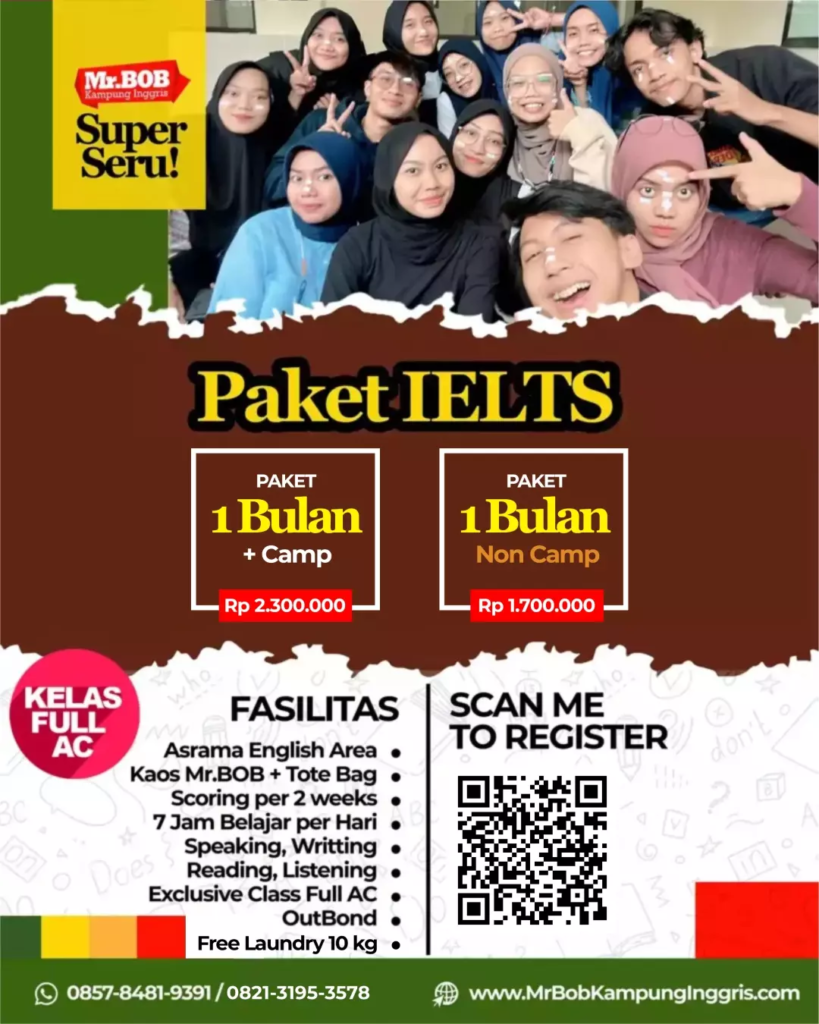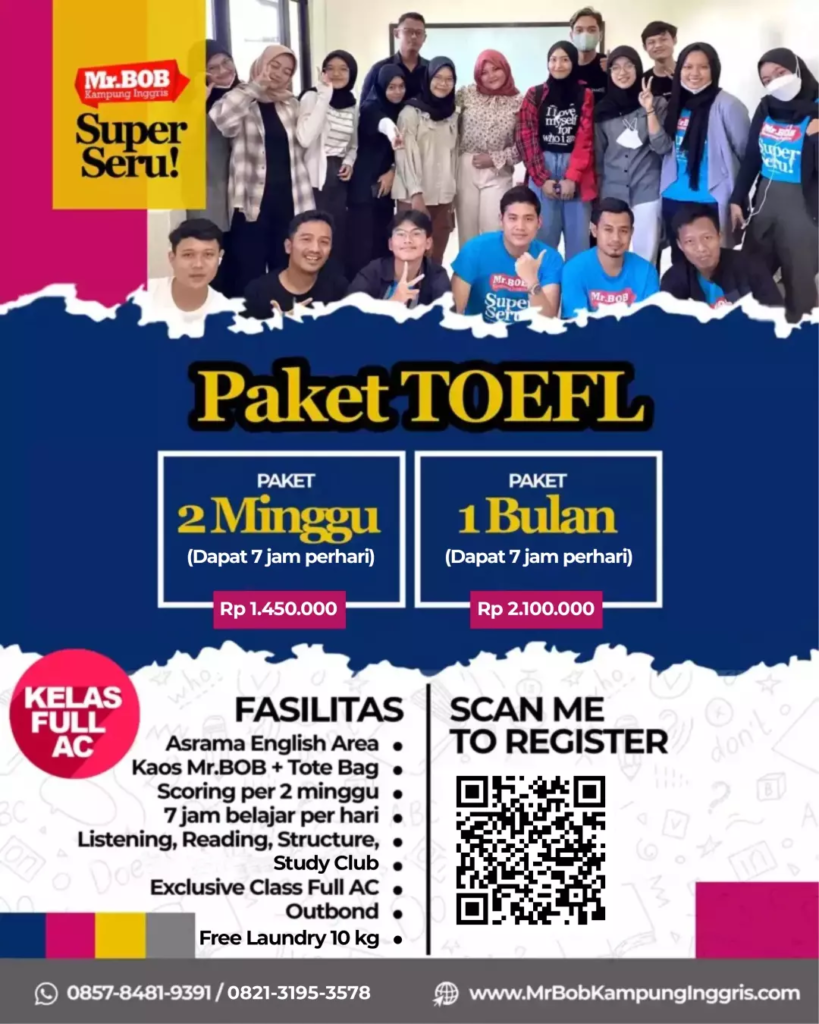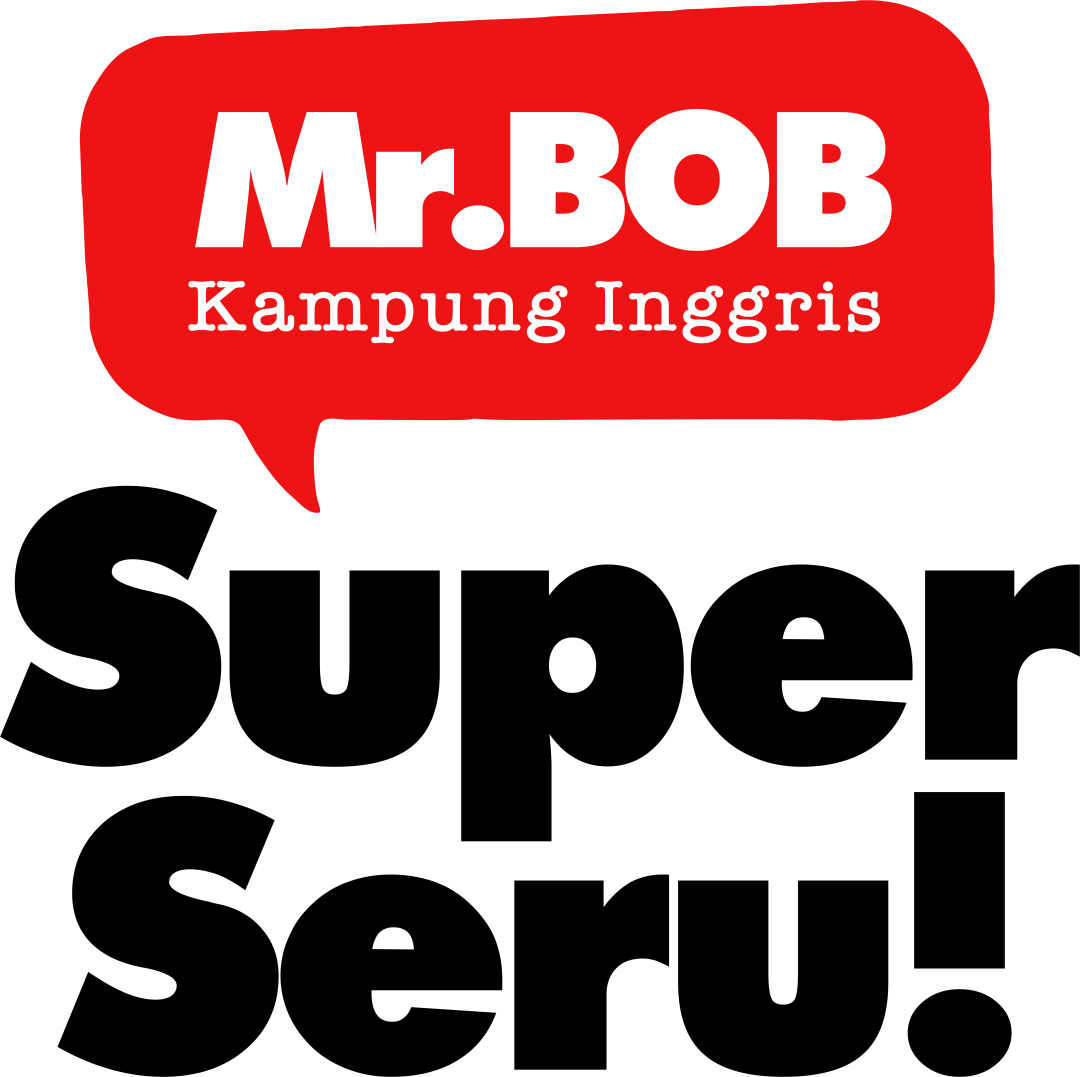Mr.BOB Kampung Inggris – Kalau kamu sudah jago bahasa Inggris level menengah dan ingin naik ke level advance, salah satu hal yang perlu kamu kuasai adalah Academic English. Academic English adalah bahasa Inggris yang sering digunakan dalam lingkungan akademik, seperti esai, jurnal ilmiah, presentasi, atau diskusi formal.
Kali ini, kita bakal bahas 50 kosakata Academic English tingkat advance yang bisa bikin tulisan dan percakapanmu terdengar lebih profesional dan sophisticated. Nggak cuma itu, kita juga kasih contoh penggunaan kata-kata ini dalam kalimat, biar kamu makin paham! Yuk, langsung aja kita mulai!
Baca juga : Mengenal IELTS dalam Bahasa Inggris

1. Kosakata Academic English untuk Argumentasi dan Analisis
Di dunia akademik, kita sering diminta untuk menganalisis suatu topik atau mengajukan argumen dalam esai atau diskusi. Nah, berikut beberapa kata yang sering dipakai dalam konteks ini:
- Assert (menegaskan) – The researcher asserts that climate change is accelerating due to human activity.
- Contend (berpendapat) – Some scientists contend that artificial intelligence will revolutionize the job market.
- Imply (mengisyaratkan) – The study implies a strong correlation between sleep and productivity.
- Refute (membantah) – The professor refutes the claim that online learning is less effective than traditional classes.
- Substantiate (membuktikan) – There is not enough evidence to substantiate the theory.
- Undermine (melemahkan) – His argument is undermined by a lack of factual support.
- Reinforce (menguatkan) – The new data reinforces the hypothesis that exercise improves mental health.
- Negate (meniadakan/membatalkan) – The findings negate the assumption that all bacteria are harmful.
- Delineate (menggambarkan dengan jelas) – The author delineates the differences between capitalism and socialism.
- Juxtapose (membandingkan dengan kontras) – The novel juxtaposes love and war to highlight their contradictory nature.

2. Kosakata Academic English untuk Deskripsi dan Penjelasan
Kalau kita menulis esai atau laporan, kita pasti perlu menjelaskan atau mendeskripsikan sesuatu dengan lebih detail. Berikut kata-kata yang bisa kamu gunakan:
- Depict (menggambarkan) – The book depicts the struggles of immigrants in a new country.
- Illustrate (mengilustrasikan) – The graph illustrates the increase in global temperatures over the past century.
- Portray (memerankan/melukiskan) – The movie portrays the life of a struggling artist.
- Elaborate (menjelaskan lebih lanjut) – Could you elaborate on your last point?
- Clarify (memperjelas) – The professor clarifies the concept of quantum mechanics in his lecture.
- Outline (menyusun kerangka) – The essay outlines the main causes of economic inequality.
- Summarize (merangkum) – The article summarizes recent developments in cancer research.
- Expound (menjabarkan secara mendalam) – The philosopher expounds on the nature of human consciousness.
- Specify (menyebutkan secara spesifik) – The law specifies the rights of workers in the industry.
- Detail (menjabarkan secara rinci) – The report details the steps taken to reduce pollution.

3. Kosakata Academic English untuk Menunjukkan Hubungan dan Perbandingan
Dalam menulis akademik, kita sering perlu membandingkan, menghubungkan, atau menunjukkan hubungan sebab-akibat antara satu hal dengan yang lain. Berikut kosakata yang bisa digunakan:
- Correlate (berhubungan) – Studies show that high stress levels correlate with lower immune function.
- Correspond (sesuai/sejalan) – The results correspond to previous research findings.
- Differentiate (membedakan) – It is important to differentiate fact from opinion.
- Distinguish (membedakan) – The research distinguishes between two types of learning strategies.
- Contrast (membandingkan perbedaan) – The study contrasts the effects of diet and exercise on weight loss.
- Analogous (serupa) – The brain is analogous to a computer in terms of processing information.
- Proportionate (berbanding lurus) – Punishment should be proportionate to the crime.
- Parallel (sejalan) – The economic crisis in the country runs parallel to political instability.
- Intersect (bersinggungan/berpotongan) – Philosophy and science often intersect in discussions about reality.
- Complement (melengkapi) – A balanced diet complements a good exercise routine.
4. Kosakata Academic English untuk Mengungkapkan Opini dan Evaluasi
Ketika kita menulis akademik, kita juga perlu mengungkapkan pendapat atau mengevaluasi suatu teori atau gagasan. Berikut kata-kata yang sering digunakan:
- Critique (mengkritisi) – The article critiques the government’s approach to education reform.
- Appraise (menilai) – The study appraises the effectiveness of the new teaching method.
- Assess (mengevaluasi) – It is crucial to assess the long-term impact of the policy.
- Evaluate (mengevaluasi) – The researcher evaluates the benefits of renewable energy sources.
- Gauge (mengukur) – Surveys help gauge public opinion on social issues.
- Scrutinize (meneliti dengan cermat) – The journalist scrutinizes the politician’s statements for inconsistencies.
- Interpret (menafsirkan) – Different cultures interpret body language in various ways.
- Validate (memvalidasi) – The experiment validates the previous hypothesis.
- Examine (menganalisis) – The study examines the relationship between diet and mental health.
- Reflect (merefleksikan/mencerminkan) – The novel reflects the struggles of the working class.
Baca juga : Mengenal TOEFL ITP dalam Bahasa Inggris
5. Kosakata Academic English untuk Menyimpulkan dan Merangkum
Akhirnya, saat menyusun kesimpulan atau ringkasan dalam tulisan akademik, kita bisa menggunakan kosakata berikut:
- Conclude (menyimpulkan) – The study concludes that air pollution significantly affects lung health.
- Infer (menyimpulkan berdasarkan bukti) – From the data, we can infer that social media influences consumer behavior.
- Deduce (menarik kesimpulan) – Scientists deduce that the disease is caused by genetic mutations.
- Synthesize (menggabungkan informasi) – The researcher synthesizes data from multiple sources to form a coherent argument.
- Summarize (meringkas) – The report summarizes key findings from the survey.
- Restate (mengulang pernyataan) – To clarify, let me restate my argument.
- Convey (menyampaikan) – The speech conveys a strong message about environmental conservation.
- Reiterate (menegaskan kembali) – The professor reiterates the importance of ethical research practices.
- Emphasize (menekankan) – The study emphasizes the role of education in social mobility.
- Highlight (menyoroti) – The paper highlights the significance of mental health awareness.
Penutup
Itu dia 50 kosakata Academic English tingkat advance yang bakal bikin tulisan dan percakapan akademikmu lebih keren dan profesional! Semakin sering kamu menggunakan kosakata ini, semakin natural bahasa Inggris akademikmu nantinya. Selamat belajar dan semoga bermanfaat!
Untuk kamu yang ingin belajar materi bahasa Inggris lainnya, kamu bisa baca artikel lainnya di website ini ya teman-teman. Jangan lupa untuk follow instagram, tiktok, dan youtube kita ya. Dan kalau kamu ingin lebih fasih berbicara bahasa Inggris, kamu bisa segera mendaftar kursus bahasa Inggris di Mr.BOB Kampung Inggris, tanya-tanya via whatsapp dulu yuk!
